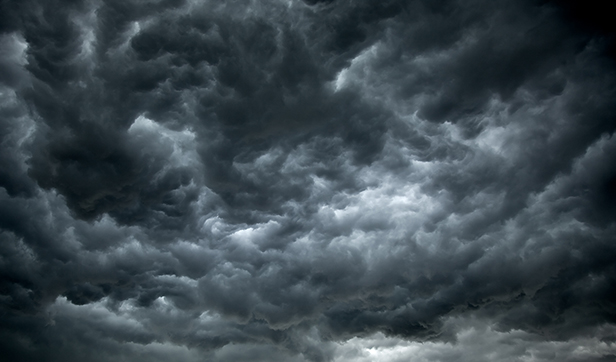
Insured damages from Hurricane Fiona are now estimated at over $800 million, according to Catastrophe Indices and Quantification Inc. (CatIQ). The previous insured damage estimate was $660 million.
Hurricane Fiona remains the most costly extreme weather event ever recorded in Atlantic Canada and is now the seventh largest in Canada's history in terms of insured damages -- up from the tenth largest as previously reported. This long-lived and powerful storm first made landfall in Atlantic Canada on Saturday September 24, 2022. With maximum wind gusts exceeding 100 km/h in Atlantic Canada and Eastern Quebec, Hurricane Fiona resulted in tragic loss of life as well as torrential rainfall, large waves, storm surges, downed trees and widespread power outages.
 The majority of the increase in insured damages is due to personal
property claims. However, many affected residents were located in
high-risk flood areas and flood plains where residential flood insurance
coverage is generally not available. Damages that occurred in these
areas are not included in the insured-damage total. As a result, it is
expected that the cost to all orders of government from these events
will total well into the billions of dollars once infrastructure and
disaster financial assistance to uninsured residents are tallied.
The majority of the increase in insured damages is due to personal
property claims. However, many affected residents were located in
high-risk flood areas and flood plains where residential flood insurance
coverage is generally not available. Damages that occurred in these
areas are not included in the insured-damage total. As a result, it is
expected that the cost to all orders of government from these events
will total well into the billions of dollars once infrastructure and
disaster financial assistance to uninsured residents are tallied.
"It is clear that a good deal of costs for this disaster will be borne by government," said Amanda Dean, Vice-President, Atlantic, Insurance Bureau of Canada (IBC). "As we continue to see the increasing impacts of climate change, it's clear much more must be done to enhance our resilience to these risks and build a culture of preparedness. This includes investments in new infrastructure to reduce the impact of floods and fires on communities, as well as retrofit programs that focus on resilience, improved building codes, better land-use planning and, increasingly, the creation of incentives to shift the development of homes and businesses away from areas of highest risk."
Over the past 15 years, insurance claims resulting from severe weather have more than quadrupled. The new normal for yearly insured catastrophic losses in Canada is $2 billion -- most of this due to water-related damage. In comparison, in the 15 years from 1983 and 2008, Canadian insurers paid out an average of about $422 million a year in losses related to severe weather.
IBC has been leading conversations with the federal and provincial governments on ways to improve the resilience of communities and better manage the costs of flooding for high-risk residential properties in Canada. As a member of the federal, provincial and territorial Task Force on Flood Insurance and Relocation, IBC has put forward options to create a residential flood insurance program -- including a public-private partnership model -- that would help make affordable insurance available to residents of high-risk areas. Hurricane Fiona serves as a reminder of the urgency with which we must move forward in those discussions.
Consumers with insurance questions are encouraged to contact their insurance representative or IBC's Consumer Information Centre at 1-844-2ask-IBC (1-844-227-5422).
IBC is committed to working closely with the private sector, first responders and governments to improve Canada's preparedness for and resilience to severe weather events.
The amount of insured damage is an estimate provided by CatIQ (www.catiq.com) under licence to IBC.